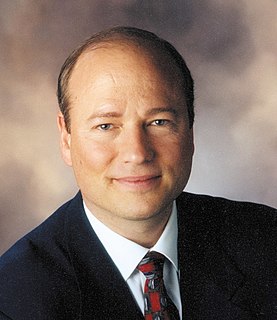A Quote by Francis Parker Yockey
Every science is a profane restatement of the preceding dogmas of the religious period.
Related Quotes
I say that creeds, dogmas, and theologies are inventions of the mind. It is the nature of the mind to make sense out of experience, to reduce the conglomerates of experience to units of comprehension which we call principles, or ideologies, or concepts. Religious experience is dynamic, fluid, effervescent, yeasty. But the mind can't handle these so it has to imprison religious experience in some way, get it bottled up. Then, when the experience quiets down, the mind draws a bead on it and extracts concepts, notions, dogmas, so that religious experience can make sense to the mind.
Every one of the numberless religions and religious sects views the Deity after its own fashion; and, fathering on the unknown its own speculations, it enforces these purely human outgrowths of overheated imagination on the ignorant masses, and calls them "revelation." As the dogmas of every religion and sect often differ radically, they cannot be true. And if untrue, what are they?
You are never dedicated to do something you have complete confidence in. No one is fanatically shouting that the sun is going to rise tomorrow. They know it's going to rise tomorrow. When people are fanatically dedicated to political or religious faiths or any other kind of dogmas or goals, it's always because these dogmas or goals are in doubt.
Ares always reemerges from the chaos. It will never go away. Athenian civilization defends itself from the forces of Ares with metis, or technology. Technology is built on science. Science is like the alchemists' uroburos, continually eating its own tail. The process of science doesn't work unless young scientists have the freedom to attack and tear down old dogmas, to engage in an ongoing Titanomachia. Science flourishes where art and free speech flourish.
For how shall we fill people with blind faith in the correctness of a doctrine, if we ourselves spread uncertainty and doubt by constant changes in its outward structure? ...Here, too, we can learn by the example of the Catholic Church. Though its doctrinal edifice, and in part quite superfluously, comes into collision with exact science and research, it is none the less unwilling to sacrifice so much as one little syllable of its dogmas... it is only such dogmas which lend to the whole body the character of a faith.



































